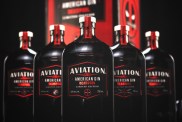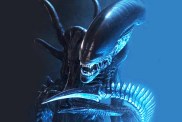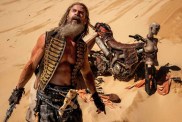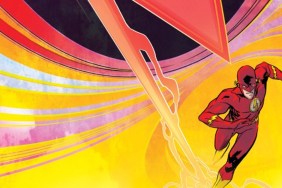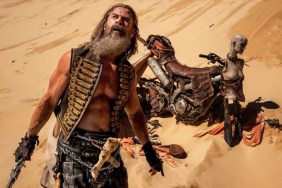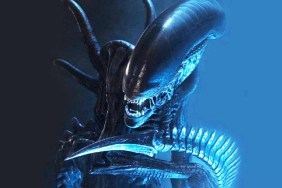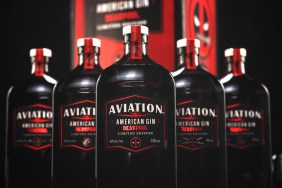Charles Roven has produced a lot of memorable films – Twelve Monkeys, Three Kings, and Bulletproof Monk were all produced by him. In the world of comic book films, he was producer on all three of Christopher Nolan’s Batman films, and now he returns to the world of DC Superheroes with Man of Steel.
We joined a group of online press to speak with Roven around a pool table at Dave’s Tavern in Plano, Illinois where Roven talked about bringing the world’s premiere hero to the big screen again.
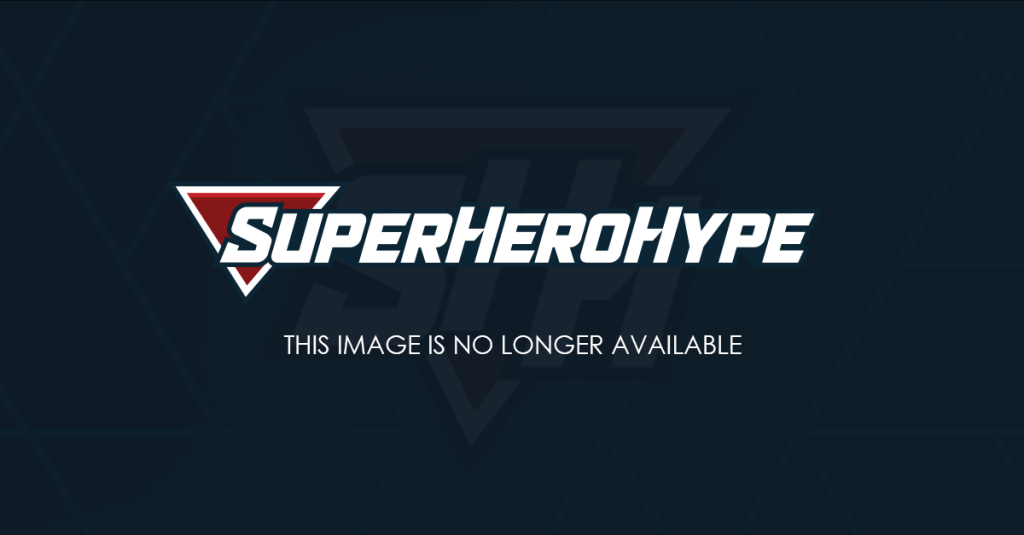
Question: So how excited were you when you heard for the first time that Nolan and Goyer had a take on Superman and that they were serious about making it?
Charles Roven: I was very, very excited because I think they’re both immensely talented guys. The collaboration’s been very successful, so of course I was excited. At that point in time, I wasn’t really involved with it, quite frankly. I got invited into the process later, once they wrote the script. So, at that point, we knew that there was going to be the situation of having to do both films at the same time, making both films at the same time. So then we just sort of – I was invited, I was going to be doing “The Dark Knight Rises.” Then when “Man of Steel,” it turned out that “Man of Steel” was going to have this overlapping production period, then we just sorta had to figure out how we were going to handle both movies at the same time. I got pulled into the process and I was really happy to be asked in.
Q: What has been your time balance?
Roven: I’ve definitely been spending more time on “Man of Steel.”
Q: Why is that?
Roven: Because I’m not married to Chris Nolan. (Laughs)
Q: We heard that Chris has been surprisingly involved. David (Goyer) was telling us that he’s been talking with him almost every day. Has that been your interaction with him as well, or has it been mostly Chris talking with David?
Roven: I’d say Chris’ real main focus – and we always knew this was going to be this way, and even more so, once I came on board because we knew it’d be overlapping productions, he was going to focus really on the story and the script, those issues. Emma (Thomas) would be involved with Chris and myself and all of this in terms of casting somewhat. We did all that, all the big parts were more or less cast before “The Dark Knight Rises” started to shoot. But, the production issues have been more me communicating with Emma. Obviously, collaborating with Debbie (Snyder), but in terms of the Nolan contingent, I’ve been spending more time talking with Emma about that. Every so often, Chris gets updated, gets involved. We really ideally would like to make sure that there’s an ongoing collaboration on both films.
Q: Is this being pictured as like, a really big kind of large scope, like a two-and-a-half hour adventure like the Batman movies?
Roven: We certainly want the length of the film to be commiserate with what we feel the scale of the film demands it to be.
Q: I’m curious, can you talk a little bit about why you chose to film here (in Plano, Illinois)? Why Chicago is Metropolis and Vancouver?
Roven: We looked at a number of different—first of all, we felt that Superman, “Man of Steel”—it is called “Man of Steel” because that’s the right name for it—“Man of Steel” needed to have a real Americana sensibility, at least if we were going to deal with any of the part of the story that had what shaped Clark. So we wanted to make sure that we shot it in a place that gave us that sense of Americana and small town. Smallville has always been a small town. We needed to find that kind of a place. We also needed to find a place that was extremely film friendly, ideally would give us a rebate of some sort. You know, all the factors that go into picking a location. I would say one of the most critical aspects is finding a community that’s going to let you do what the great people from Plano did, which is let us take over the center of their town and turn it into our town and be happy that they were doing it. So, Plano hit off every one of those marks. When you think about it, and other places didn’t, so that’s what brought us into Illinois. You know, I’ve made two other films in Chicago. Chicago has been just an amazing film friendly place and we felt that there was – once we decided that we would be in Illinois, where we thought about where we were going to get another big city look, which we had to have. We had to have a place that would be Metropolis, Chicago just seemed a natural fit. I’ve had previous good experiences shooting here. Metropolis – I mean, Chicago has just got a great skyline that can be altered to fit what we want Metropolis to look like. It’s 45 minutes away, an hour away. Then finally, Vancouver, the Snyders have had really a lot of success shooting films in Vancouver. They really also like the crews there. They think they’re really great. We did need a place where – a city where we could get some weather looks that was around a filmmaking center as opposed to like, just say a place like Los Angeles, although it’s tough to shoot in Los Angeles these days, or down in Louisiana where there is a lot of shooting, but you don’t get a lot of different weather looks. We wanted to have a number of different weather looks and Vancouver afforded that and also again it’s a film-friendly city. You get a number of different potential rebates and it doesn’t really matter what sized budget you’re working with. All of those soft money issues become increasingly more and more important.
Q: Now, were there any sort of considerations about what you were going to have to do to make Chicago more Metropolisy and less Gotham City having had Chicago already play in the Batman franchise?
Roven: No, not really because you’ve had Chicago be Gotham, but you’ve also had Chicago be Chicago with “Transformers.” You know, Chicago’s such a great city because it’s got so many different brilliantly architecturally looking buildings, and you can really modify that city. I mean, if you really look at the Batman movies and what was done to make Chicago look like Gotham, and then you look at “Transformers,” those cities do not look anything at all alike. We felt that we could do the same thing.
Q: Most of the destruction in this movie, is it here or are you guys going to be blowing up crap in Chicago and Vancouver as well?
Roven: (Laughs)
Publicist: That’s an A-10 out there!
Roven: Are you calling an A-10 crap, seriously? (Laughs) You know, let’s just say I think Debbie (Snyder) answered it. We’ve got a really great film that we think’s got a great, great story and we’ve got a lot of drama and a lot of action. I mean, action is all the way through the film, wherever it takes place.
Q: I’m curious about Krypton and how much are you guys going to build of Krypton practically up in Vancouver or is Krypton going to be all greenscreen?
Roven: We thought about going there. (Laughs)
Q: The rebates don’t have room for that.
Roven: Right. (Laughs) A little cost-prohibitive. You know, we’re doing all of it in every possible way that you can conceive of it.
Q: So you’re definitely shooting something in Vancouver? I think if you look at “The Green Lantern” and Oa was basically all greenscreen. I think that for a lot of us, it maybe wasn’t that physicality on any part of the landscape that made you believe you were there. That’s an issue.
Roven: Here’s the thing. We’ve said to you—and you just really—we want the film to feel that it could be real. We really do. That’s really important to us. We want the drama to play real. We want the character’s emotional choices to play real. So, in everything that we’ve done from the way that Zack is shooting the picture to the way we decided how to do our best to make sure that you’re feeling like you’re there both in terms of the production design and in terms of the visual effects, in terms of the practical effects, we’ve really tried to do our best to deliver that real feeling in every aspect of it. So, we’re really mindful of that thing. I don’t want to compare us to another movie. I don’t want to say we’re going to do it different than that, but our goal is to make things feel real. We know that the more real elements we could figure out a way to put in there, like that (spacecraft) that you saw in the barn, it’s going to make you feel like, “Gee, we’re emotionally connected to the drama.” We feel that’s really important and we want to deliver that.
Q: You’re coming along relatively soon after another Superman movie. How does that affect this production? What lessons do you take from that? Has it impacted this at all?
Roven: Well, it impacted it only to the point that, not withstanding what David said, which is whether a lot of people understood “Superman Returns” as the homage that it was to the Donner pictures or didn’t. It was an homage to those pictures and I was a young man when those pictures came out and those pictures were great. I was also an Action Comic fan when I was a young kid and those comic books affected me and Superman is – he’s the one. He’s the first one. He’s the one. He’s the one everybody is always compared to. So, we just felt that because that was that – and it’s so referenced to the other movies, that the timing, however long the period had been, the timing was right enough to do this version of it.
Q: Do you get any sense that you guys, you and the Nolans, have gotten the Batman franchise, taken it beyond anyone’s expectations, especially after the last few that they did in the 90’s…this looks like a whole new take. Assuming this is a hit, we know “The Dark Knight Rises” is going to be another colossal hit, is there a sense that if anyone sat in the room and Warner Brothers said to you guys, “Look, can you do this for ‘The Flash’? Can you help us get ‘Green Lantern’ back on track?” Overseeing like, the Nolans are doing now with this, any sense that something like that could happen, that they could then develop these other DC characters and tie them all together somewhere down the line?
Roven: You know, here’s the thing. I’ve worked with Chris, had the great pleasure of being able to work with him for, I don’t know, nine years now. He always does things one picture at a time. He just doesn’t think about it. People ask him those kinds of questions, but he won’t focus on answers to those kinds of questions because then he’s not focused once he does that. If he answers in the affirmative, okay, then by definition he’s going to have to be thinking about that while he’s doing this. I don’t think he wants to do that. I’ve never noticed him to want to do that. Every time people have asked him that question, whether it’s been really anybody, just a casual question to maybe a more pointed question, maybe a press conference, he just won’t engage.
Q: What about you?
Roven: Look, I think that I’m a pretty great producer, but the vision behind “Batman” is Chris Nolan. I’m there to do my best to help execute that vision, and I think I do a really good job, but the vision is Chris Nolan.
Q: Is this more of a shared vision?
Roven: Well, I think that Goyer and Chris shaped the idea of the story. It was definitely David’s original idea of the story. He came to Chris with it. So, it’s certainly a shared vision from that standpoint. But once again, while that vision stayed constant to a certain degree, it was then mutually informed by Zack, right? So, my job is to help that redefined vision that has those three visionaries making it to deliver that, to help that vision be delivered. That’s what I do.

Q: Do you have the sense though, that when Chris finishes on “The Dark Knight” movie, then nine months, 10 months before this is released that he’s going to sort of focus more intently on this sort of in post-production and what not?
Roven: It is our desire that this creative team that we have of Chris, Zack, David, myself, Emma, Debbie, that we all are in the process of bringing Superman to the finish line.
Q: With “The Dark Knight Rises,” something’s very striking is the amount of IMAX footage you’re going to be doing on it. Was there ever any discussion about doing anything IMAX on “Man of Steel”?
Roven: Not really. Most of our conversation went around the whole 3D and how we were going to do the 3D. Would we do, make it 3D or would we do the conversion process? Then, when we got the good fortune to be able to have this additional post production time, that sort of helped us define exactly how we were going to execute the 3D, and then that’s still the plan right now. But that’s really all the conversations.
Q: The industry is changing, as you know, as far as the delineation between pre-production, production and post. So much of it is now worked out in pre-production and production in terms of the world building and all of that. How is that working on this film?
Roven: I would say that this film is definitely an example of that. We certainly went into the shooting of the film with a script that we all felt was essentially – not that you don’t do tweaks and whatever as you go through the process of making the movie because the actor brings so much and you realize you might need actually a little bit less of this and a little bit more of that. The same thing as you do in the action. So, the script was really essentially locked before we started to shoot. While we didn’t do 100 percent of the storyboards before we started shooting, the vast majority, Zack’s storyboards, all of them I’m sure Debbie mentioned to you, he storyboards everything, not just the action, he storyboards everything. It’s how he gets to focus his mind’s eye on what it is that he wants out of each scene. So, this is really a film that did have quite a lot worked out before we started shooting.
Q: You guys have an incredible cast. Was there anybody that you guys went after that you couldn’t get? It seems like you just aligned a pretty stellar group.
Roven: We considered ourselves to be amazingly fortunate. I have to say, the cast is great. (Laughs) It’s sorta like, really amazing. It’s amazing when we talk about the fact that – and they’re fantastic in the film.
Q: How did you talk Russell Crowe and Kevin Costner into just coming on board?
Roven: It actually wasn’t that hard actually. The things that we felt – first of all, Zack really, really, really knows the movie he wants to make. So, he is extremely articulate about being able to tell an actor, whether it’s before or after they’ve read the script, what he’s trying to deliver. That gives that actor a tremendous amount of confidence that they’re working with a guy who knows exactly what he’s doing. The script is just really, really good. I’ve never met anybody who has looked at it who hasn’t been kind of really surprised about how good it is.
Q: From your point of view, how hard was the search that led to Henry? How hard did it feel to you?
Roven: We really did look at – we looked at a lot of different possibilities and read many of them. But, the guy who kept coming back—not that he was such a hard choice ultimately—he was always on our shortlist. Of course, he had a history with the previous version. I don’t know if you guys know that. You guys do, right? So, and he just looked like he could do it even more so now, and we wanted the guy to be older. So, he was always there on the shortlist and then when we tested him he just, he was great. He was great.
Q: Does the design for the ship that baby Kal-El came to earth in that we saw earlier, based on that design, does that sort of inform what the look of structures, for instance in Krypton, look like? You probably will have to tell me that you can’t tell me, but I do have to ask, is the Fortress of Solitude at all in the film?
Roven: You know, you answered your question. (Laughs)
Man of Steel opens nationwide in 2D, 3D and IMAX theaters on Friday, June 14.

